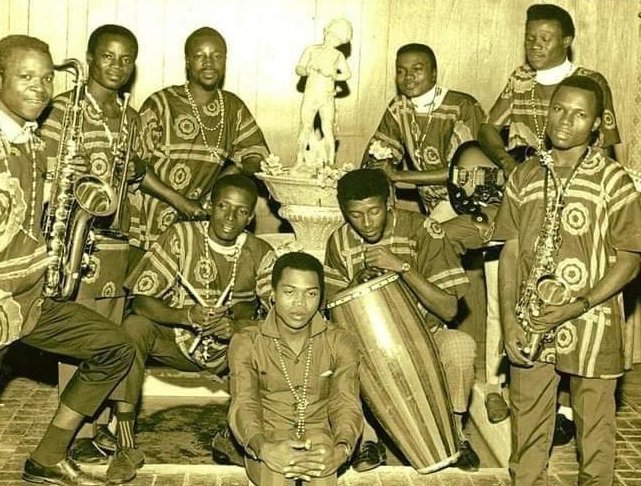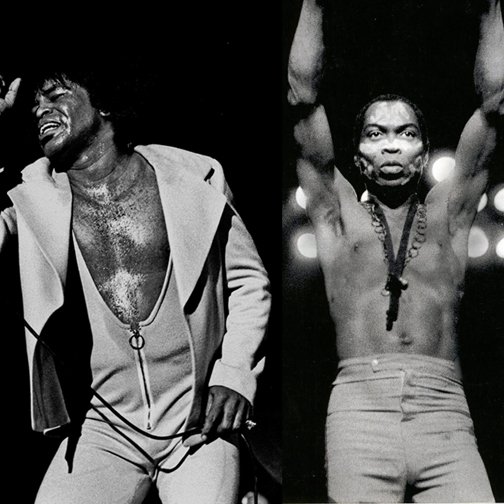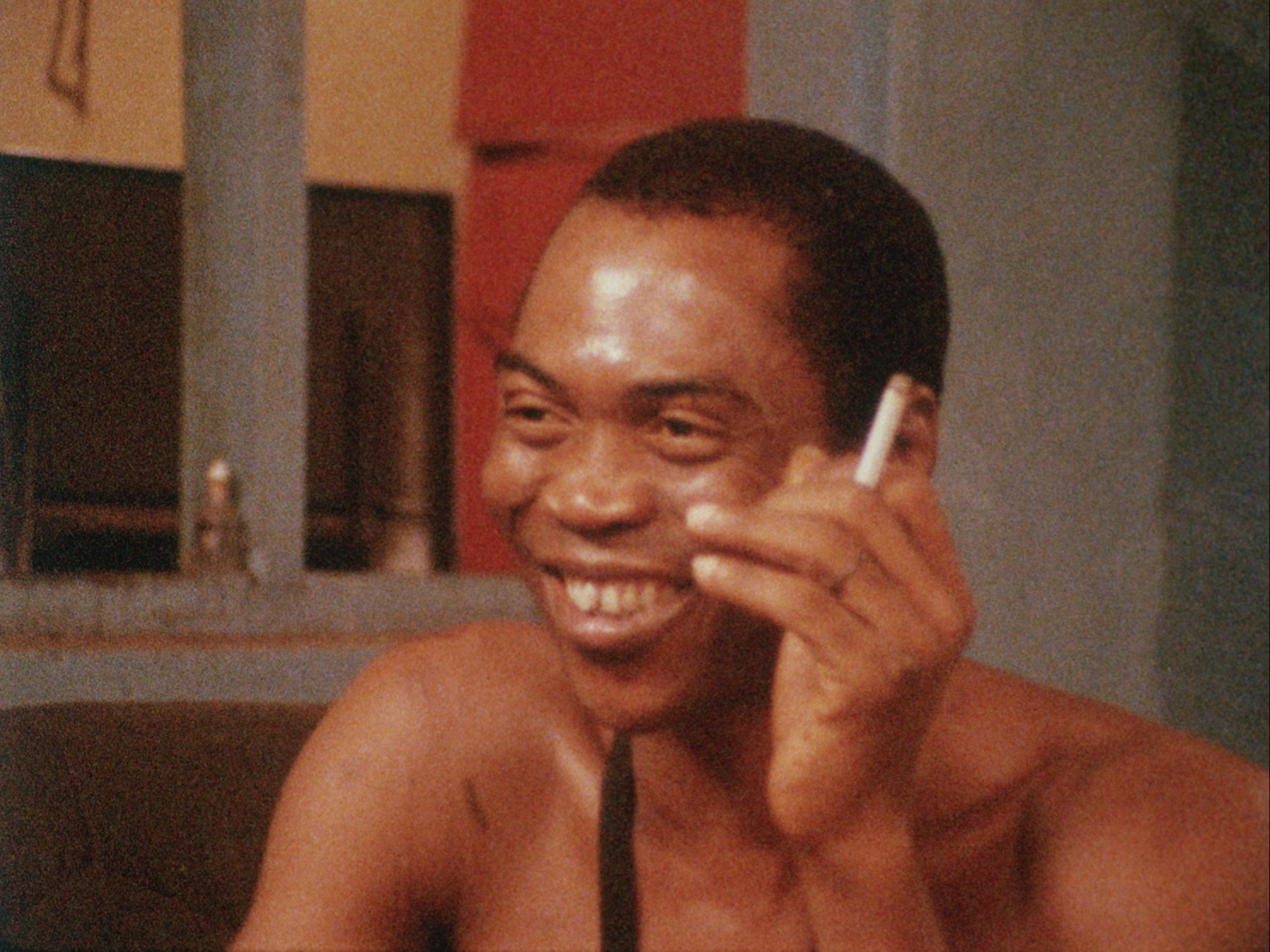Mainstream Nigerian music or Afrobeats would not be what it is today without the progenitor of Afrobeat himself, Fela Aníkúlápó Kútì. It is impossible to overemphasize his impact on not just the Nigerian music industry but the world at large.
Beyond being a Pan-Africanist and political activist at the time in Nigeria, his musical influence has transcended borders and generations. From the groovy, high-spirited Afropop to the Western hip-hop genre, the impact of Fela cuts across, spanning through music and film.
Some might find the popularity of Fela Kuti in America somewhat curious considering the heavy use of Pidgin and Yoruba in his music. Why do Americans revere him till this day? The answer lies in his relationship with the US, which runs so much deeper that one might think. We examine the symbiosis in this piece.
The Genesis of Afrobeat: Fela’s Musical Journey
Born Olufela Ransome Kuti in 1938, in Abeokuta, Nigeria, Fela Kuti is regarded as one of the greatest musicians of the 20th century and the ingenious innovator of the Afrobeat genre. Afrobeat (which differs from Afrobeats) blends American Jazz, Funk, Highlife, Soul, and traditional African rhythm and chants.
Fela’s journey began with his band, Koola Lobitos, and evolved into a unique sound that reshaped music history.

On his return to Nigeria in 1963, Fela regrouped his band, Koola Lobitos (initially called Fela Ransome Kuti Jazz Quintet) whose music style was primarily founded on Jazz. Two years later, Fela began to incorporate highlife together with jazz, thereby re-forming his band to Fela Ransome Kuti and His Koola Lobitos, recruiting drummer Tony Allen, a key architect to the creation of Afrobeat. But yet, the “special” sound hadn’t been birthed, as he began searching for the missing piece.
He would eventually find it in America, in more ways than one.
Fela Kuti’s Influences and Inspirations: From Jazz to Highlife
History tells us that James Brown was a major influence on Fela Kuti’s style. James was popularly called the “King of Soul”. Both their styles of music exhibited similarities and were reported to have influenced each other’s music. In fact, in the mid-1960s, Fela was said to be star-struck by the heavy groove and glaring success of James Brown’s artistry. “His equipment… something else… he came in a big way… one of those big American cars. Flashy new equipment. Lots of bread. He had everything I didn’t have…I had seen the impact this motherfucker had in Lagos… he had everyone in his pocket… I knew I had to get my shit together quick!” Fela said.

But James Brown was also stunned by Fela Kuti’s ingenious and vibrant music. He, alongside his band, visited Fela’s Shrine to get a feeling of his music and implement it. Stories say both Fela and James influenced each other. Fela Kuti was influenced in America while James Brown was influenced in Africa. And so, the legendary musician returned to Nigeria in 1967 and started to play with his band at a club he founded in Lagos called Afro-spot (later became Afrika Shrine).
The Afrobeat Revolution and the Western Political Influence
Fela’s Afrocentric consciousness and politically challenging style of music weren’t prevalent from the onset. While he was famously revered for his activism, it wasn’t until 1969, when he and his band toured Los Angeles in the United States that he met Black Panther and civil rights activist, Sandra Izsadore (neé Smith) who exposed him to the Black Power Movement. Fela learnt the philosophies of black activists like Malcolm X, Angela Davies, Jesse Jackson amongst others, opening him to social and political issues. This impact stirred Fela to a significant extent, influencing his music and political views thereafter.
This sharpened political ideologies coupled with his unique sound truly did it for him. In the 1970s, the revolution of Fela and his band spread like wildfire throughout Nigeria and Africa, even to the Western world. So much that famous musicians like Paul McCarthy came down to Nigeria to watch him perform. “They were the best band I had ever seen live. I just couldn’t stop weeping with joy. It was a very moving experience,” Paul said.
Fela Kuti’s Legacy in Modern Music
America, particularly Black America, is synonymous with oppression and the fight to break free from it. Hence, it makes sense that such a community would relate with Fela’s music, even though a large portion of his lyrics were performed in languages foreign to them.
Fela’s music, with its powerful messages and unique sound, resonated deeply with the African American community, who saw parallels between their own struggles and those Fela sang about. This connection helped solidify Fela’s influence in the United States, making his music anthems of resistance and empowerment.
Sampling and Interpolations
Popular artists in the American music industry and around the globe have incorporated Afrobeat using either chorus, verses, or rhythms by sampling famous albums from Fela into their songs.
- J. Cole, for instance, sampled the hook and riff of Gentleman into his 2013 released single, Let Nas Down.
- In 2020, Kelly Rowland sampled Fela’s Mr. Follow Follow (1973) into her song, Hitman.
- Whatcha Gon’ Do (2001) by Missy Elliot ft. Timbaland which samples Colonial Mentality (1977)
- Warrior Song (2002) by Nas ft. Alicia Keys which samples Na Poi (1972)
- Fear not of Man (1999) by Yasiin Bey (fka Mos Def) samples a Fela song of the same name from 1977
- I Will Not Apologize (2008) by The Roots which samples Mr. Grammarticalogylisationalism Is The Boss (1975)
- Fela Kuti (2017) by Wycleaf Jean which samples Eko Ile (1973)
- 85 to Africa (2019) by Jidenna samples Obe (1993)
Over a hundred songs have been sampled and interpolated from Fela’s music, many of which are from the Western world and the Hip-hop genre.
Live Performances and Tributes
Aside from sample releases, some artists have notably performed live songs from the Afrobeat legend. Multiple Grammy Award winner and American artiste, Beyonce took to Coachella stage in 2018, to pay homage to the Afrobeat pioneer, where her band gave a thrilling rendition of the 1973 classic, Zombie.
Another notable mention of Fela-inspired moments was when Erykah Badu performed her hit song “On & On” over the instrumental to Fela’s “Sorrow, Tears & Blood” in 2017. Also, American singer Bilal recorded a remake of Fela Kuti’s 1977 song “Sorrow Tears and Blood” for his second album, Love for Sale.
Fela Kuti’s Influence on U.S. Music
To limit the influence of the progenitor of Afrobeat to the corners of Africa would be demeaning to his greatness. Fela’s music touched many contemporary and legendary musicians around the globe. George Clinton, Common, Alabama Shakes, Jim James of My Morning Jacket, Merrill Garbus, and Brian Eno, with so many others, have acknowledged Fela Kuti’s music and the impact it had on them.
“It sounded revolutionary to me. It changed my whole world of what music could be,” Brian Eno said.
Even George Clinton admitted to biting off Fela’s music.
The Everlasting Impact of Fela Kuti and Afrobeat
Twenty-seven years after his demise, the legacy of ‘Àbàmì Edá’ (strange one) as he fondly calls himself, cannot be overstated, as his music thrives in almost every genre and sound in the world. Although Rolling Stone may rank him at number 188 on its list of the 200 Greatest Singers of All Time, yet one cannot fathom the depth of the culture he birthed.
Beyond the optimistic, high-spirited, and groovy Afrobeats–an amalgamation of Afrobeat and other genres–which is rapidly taking over the world, Fela Kuti’s impact in the United States is one that cannot be swept away by the sands of time.
“Music is supposed to have an effect. If you’re playing music and people don’t feel something, you’re not doing shit. That’s what African music is about. When you hear something, you must move. I want to move people to dance but also to think”, Fela Aníkúlápó Kútì once said.
Till this date, this statement still stands, pulsating through African, American, and global music.





